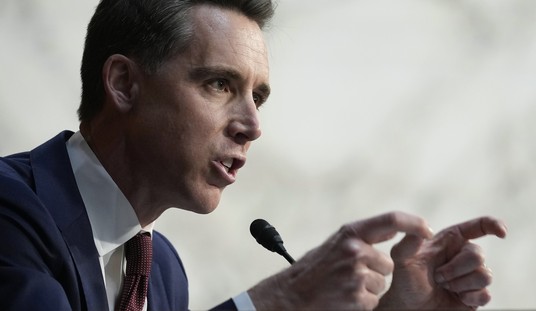Many earnest but ill-informed Americans legitimately wonder how the economy could have done so well under former President Donald Trump yet go spectacularly south in such a short time under President Joe Biden. The answer to that question is straightforward. Trump doesn't believe that the government should run the economy. Biden and his puppet masters think the government should run the economy, and that they should run the government.
They're wrong. There are at least two good reasons why no individual or small cadre of people should "run" the economy: First, people are frequently wrong, even in subjects they know a great deal about. (And no one in Biden's administration knows much about business.)
Second, once people have the power to "run" the economy, what you have access to is limited to what they have decided you will have.
Put those two things together -- ignorance and untempered power -- and you get a recipe for the kinds of economic failures command-and-control economies are infamous for.
I attended an academic conference some years ago at which both attitudes were on display. During one panel discussion, a female speaker complained that both major hospitals in her city were building MRI facilities and adding wings to their buildings. "We don't need that many MRIs," she insisted, "and we don't need that many hospital beds."
This woman was not a physician, nor was her expertise in health care administration, population growth or demographics. She simply believed that she was in a better position to decide how the hospitals should spend their money, and she wanted politicians who felt the same way.
Another academic in the audience stood up to emphatically support her position. He was irate about toothpaste. "I was just at the drug store," he said, "and there had to have been 20 brands of toothpaste. We don't need 20 brands of toothpaste!"
Welcome to the worldview that spawned the Soviet Union's breadlines and Venezuela's national dumpster diet of zoo animals.
Recommended
Let's take the woman's position first. Had she been in a position to stop the two hospitals' capital expenditures, neither one would likely have been able to meet the (then) unforeseen capacity issues caused by last year's COVID-19 pandemic -- not to mention to growing demand for services created by an aging population. How many times do we have to learn this lesson? No one can predict the future.
As for her male cheerleader, who is he to decide how many brands or types of toothpaste there should be? Some people need toothpaste formulated for dentures. Others need toothpaste for sensitive teeth. Children need fluoride and cavity protection. Some people want whitening, and still others select their preferred brand for the way it tastes. Why should he be able to decide these people cannot have what they want?
But that's how planned economies work. Some wonk with a theory says, "This is the toothpaste that the public needs." And that's all you get. The same holds true for cars, shoes, clothes, technology, hospital beds -- and anything else you can think of.
When the central planners are wrong? Then you have pointless surpluses and frequent shortages. Emigres from communist countries often describe the time they spent standing in lines, without even knowing what was being handed out or sold, because that was the only way to get anything whether you wanted it or not.
The American economic system has performed as well as it has for nearly 250 years precisely because no one "runs" it, plans it or decides how every industry and every business should operate within it. Instead, millions of entrepreneurs and business owners run their enterprises, acquire expertise, compete with one another for the hard-earned money of their customers and adapt constantly to changing conditions, new information, developing technologies and the public's shifting tastes and preferences. We, the consuming public, decide daily which products and companies we want to purchase and patronize.
This system, while unplanned, is neither disorganized nor random. It produces enterprises that meet public needs and wants, for the most part efficiently and profitably. True, a company's management can make poor decisions that could lead the business to fail. That's unfortunate, but the fallout tends to be limited to that company's investors, employees and customers.
By contrast, when those same kinds of errors are made by people in control of an industry -- or an entire economy -- the results are systemic and catastrophic.
In a free market system, private companies have an incentive to cater to you, the customer. In a planned economy, private companies (assuming they are allowed to exist) do not answer to customers; they answer to the government. "Doesn't the government answer to the people?" Get real. Even in a political system that permits public participation (such as voting), changing anything is difficult, inefficient, cumbersome and infrequent at best.
In other words, if you go to the grocery store today to buy a box of cereal and find that it's half empty and filled with dead bugs, you'll switch brands tomorrow -- and you can because you have other options immediately.
But if changing your economic options means changing the government every two or four or six years? Good luck with that.
In addition to incompetence, government control of economics also breeds corruption. When government power, not consumer preference, decides which companies will and will not operate, bribery and graft follow. And in economies where private enterprise isn't allowed, governments penalize -- and even criminalize -- the natural human entrepreneurial impulse to solve problems for other people because it makes the government look bad.
None of this is speculation; we've seen it over and over again.
Ignorance of what makes the American free market system so successful is dangerous. The same people who cannot figure out why the Biden policies are taking the economy into the toilet are likely to vote for more of it. And we'll all pay the price.

























Join the conversation as a VIP Member